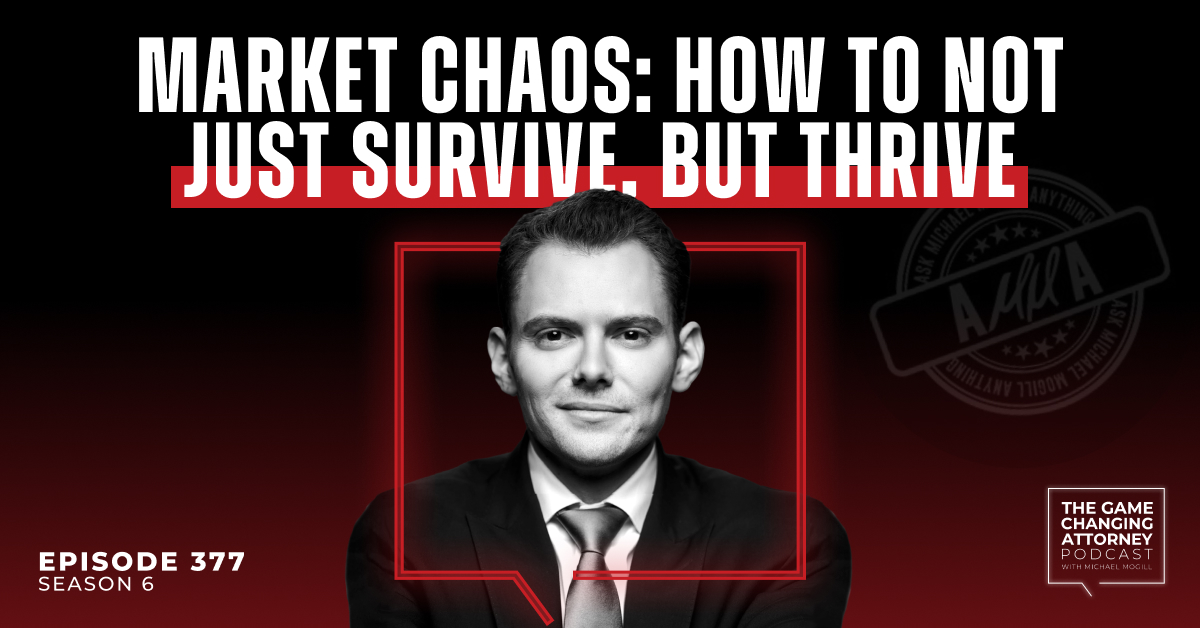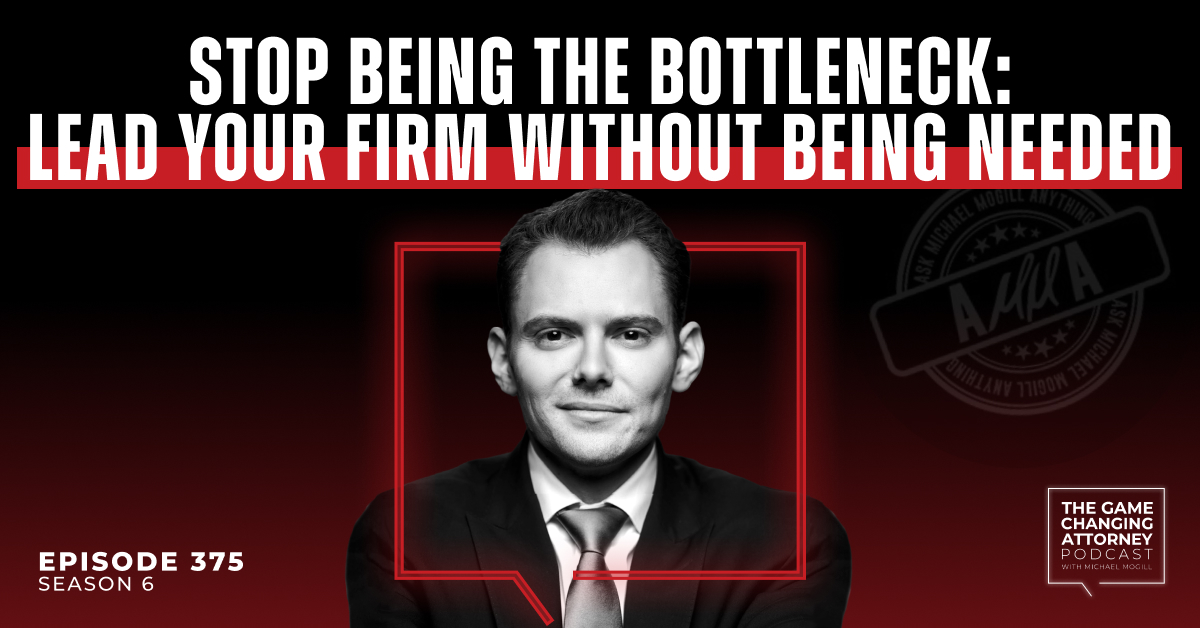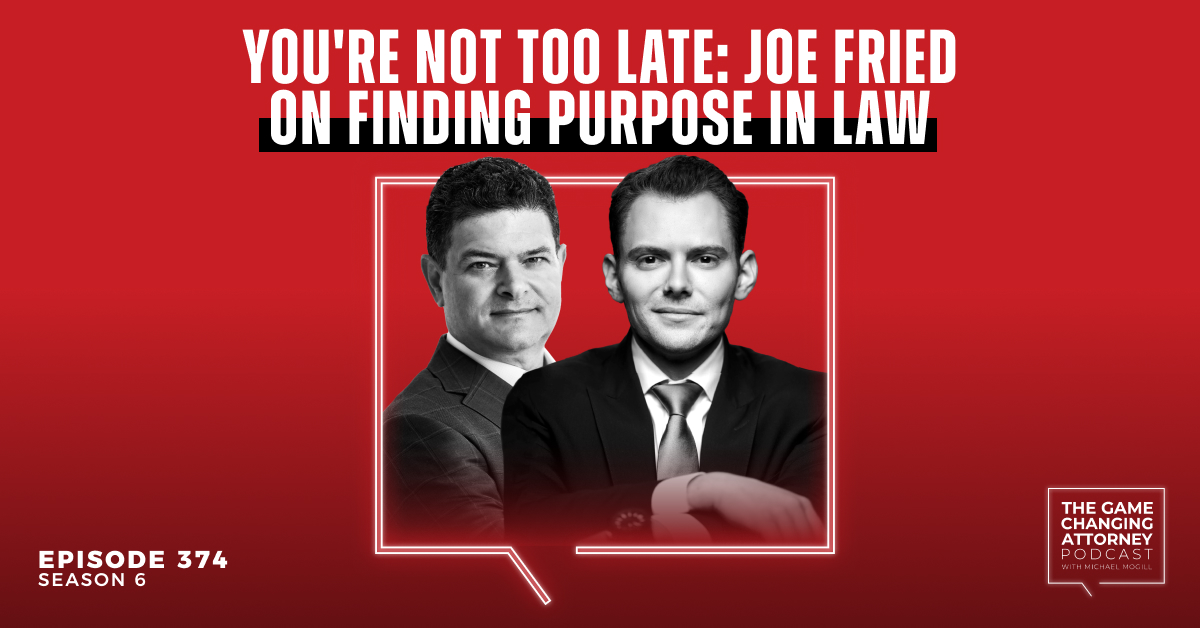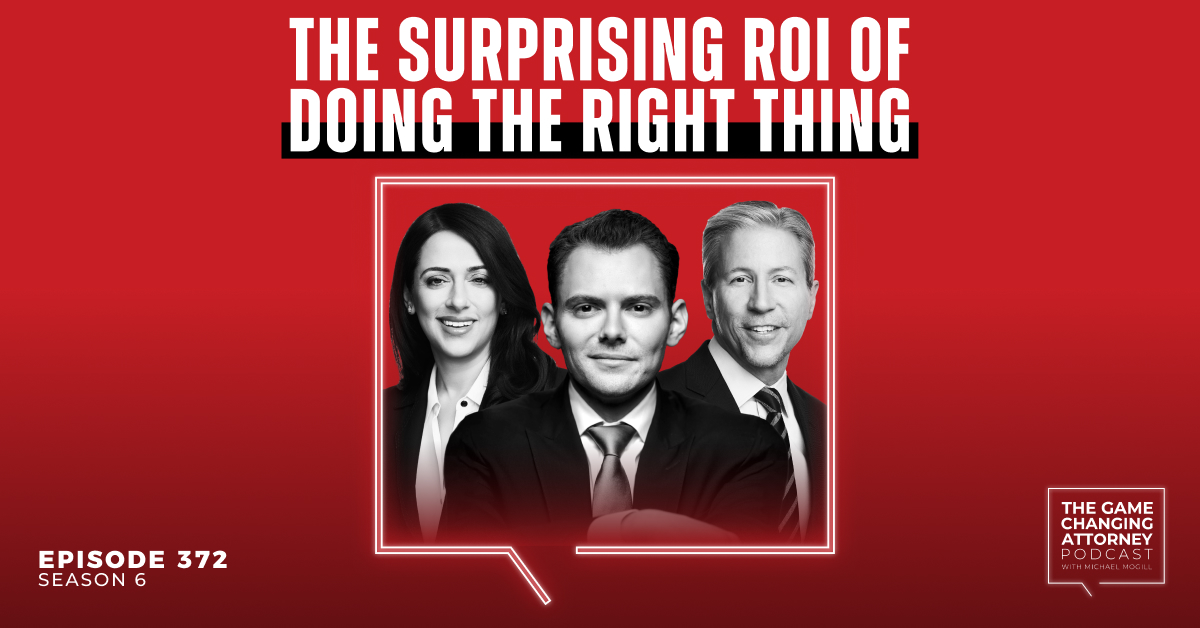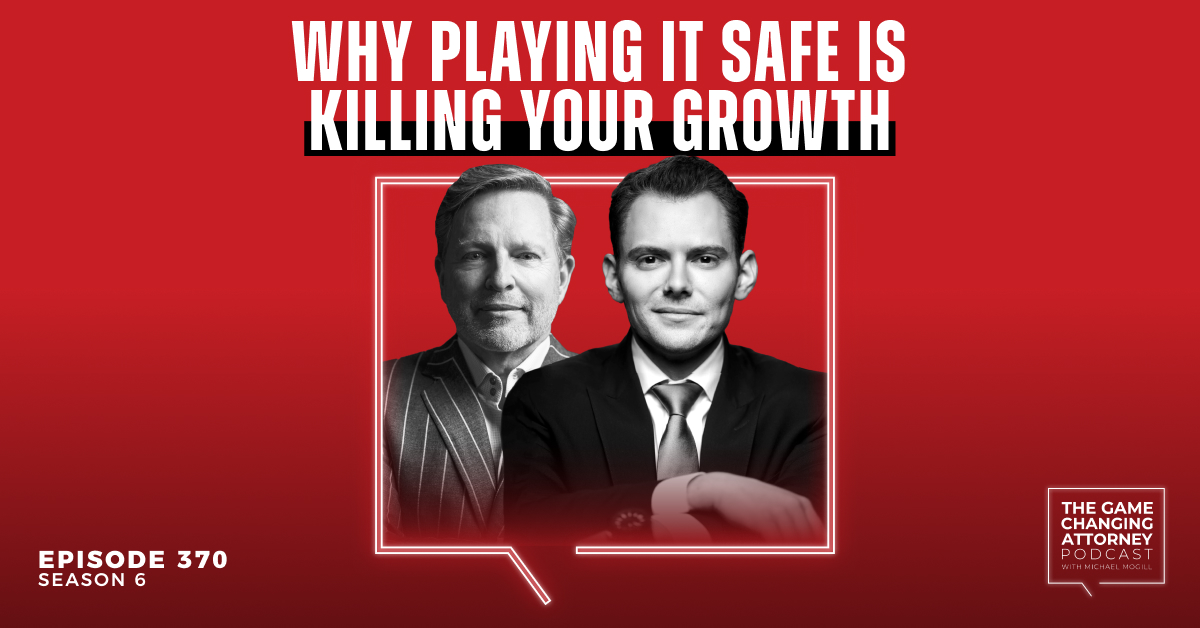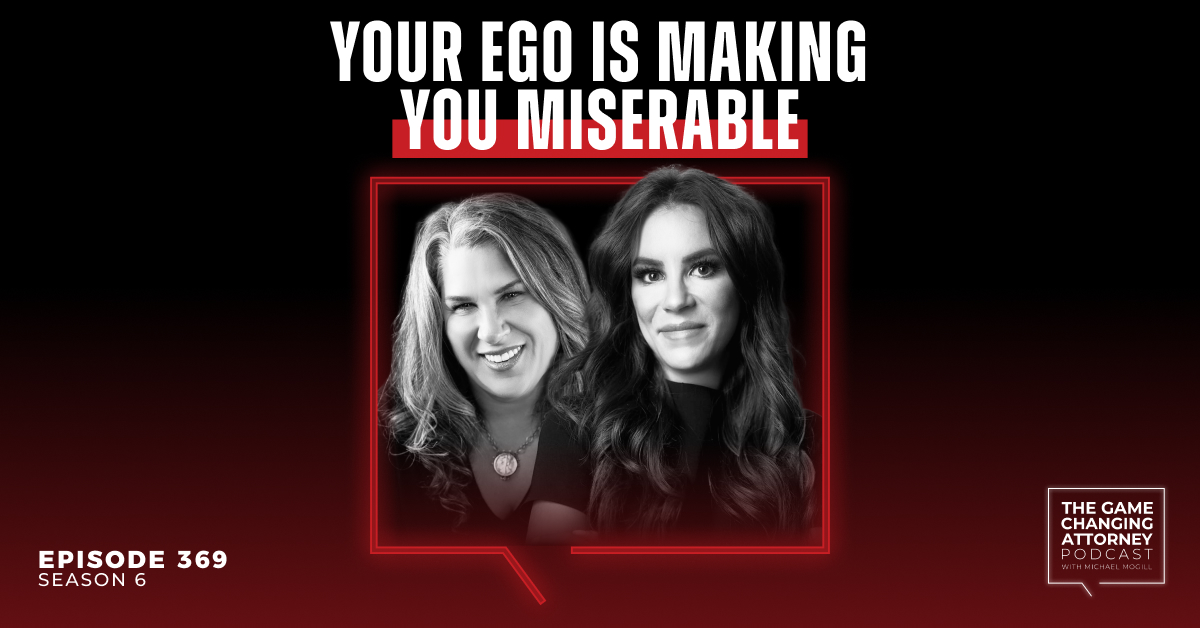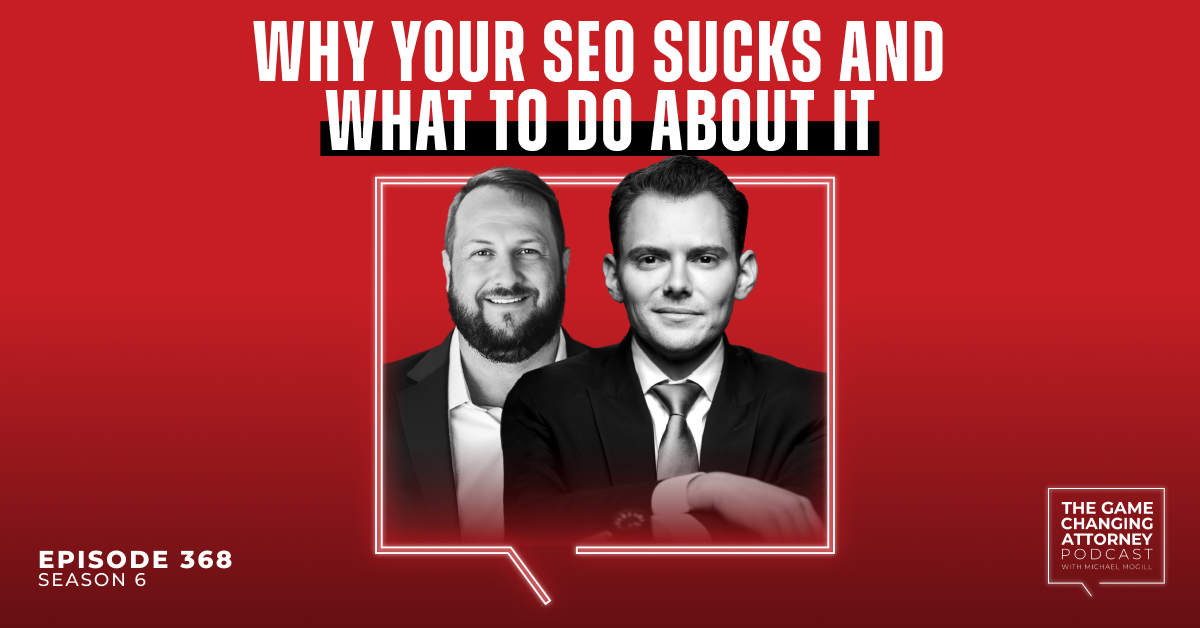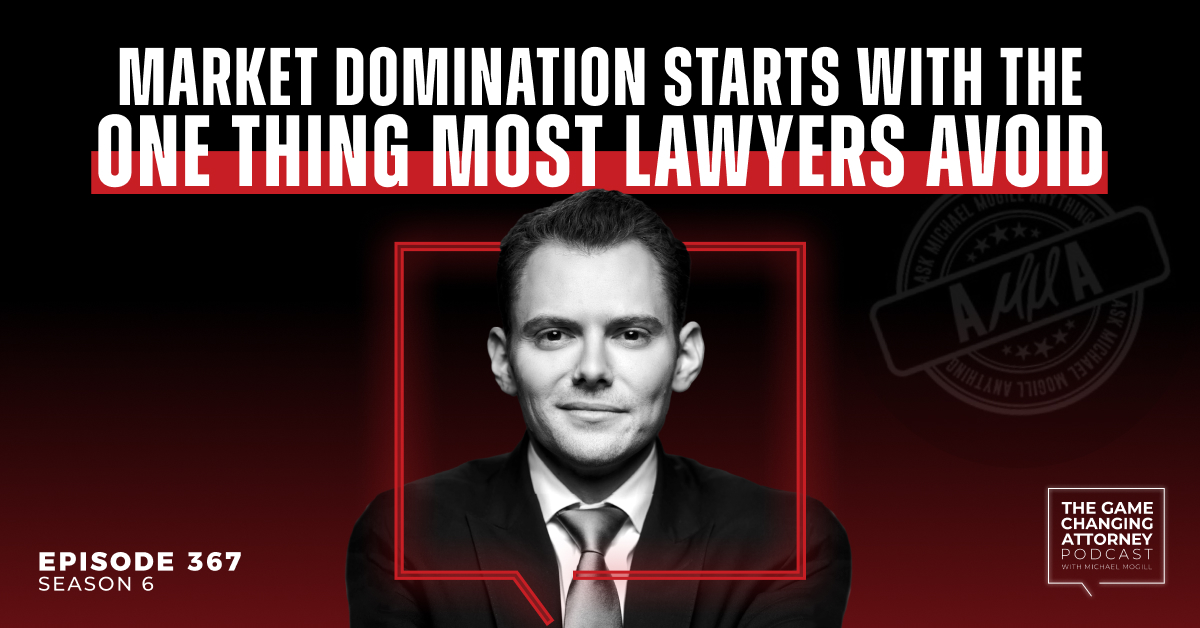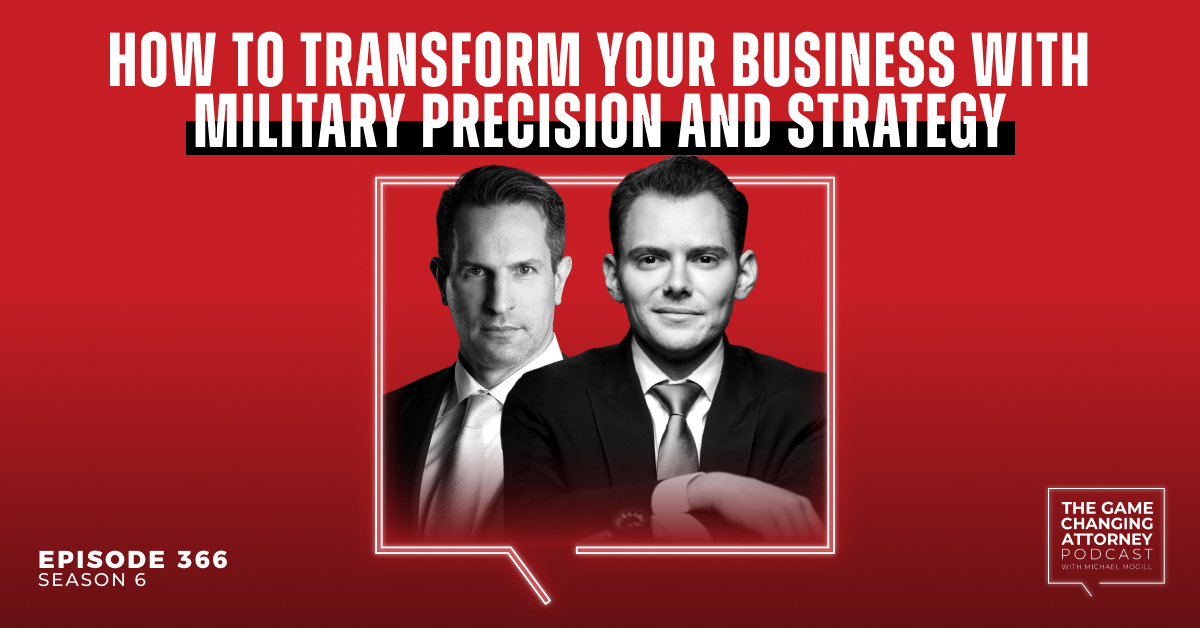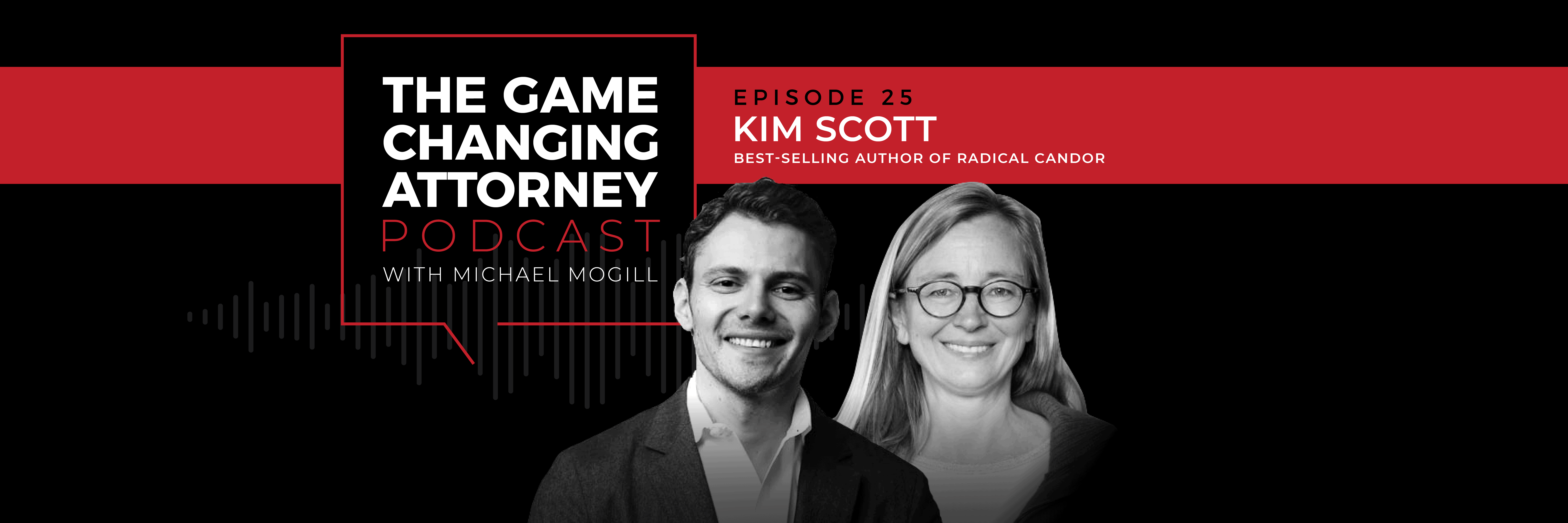
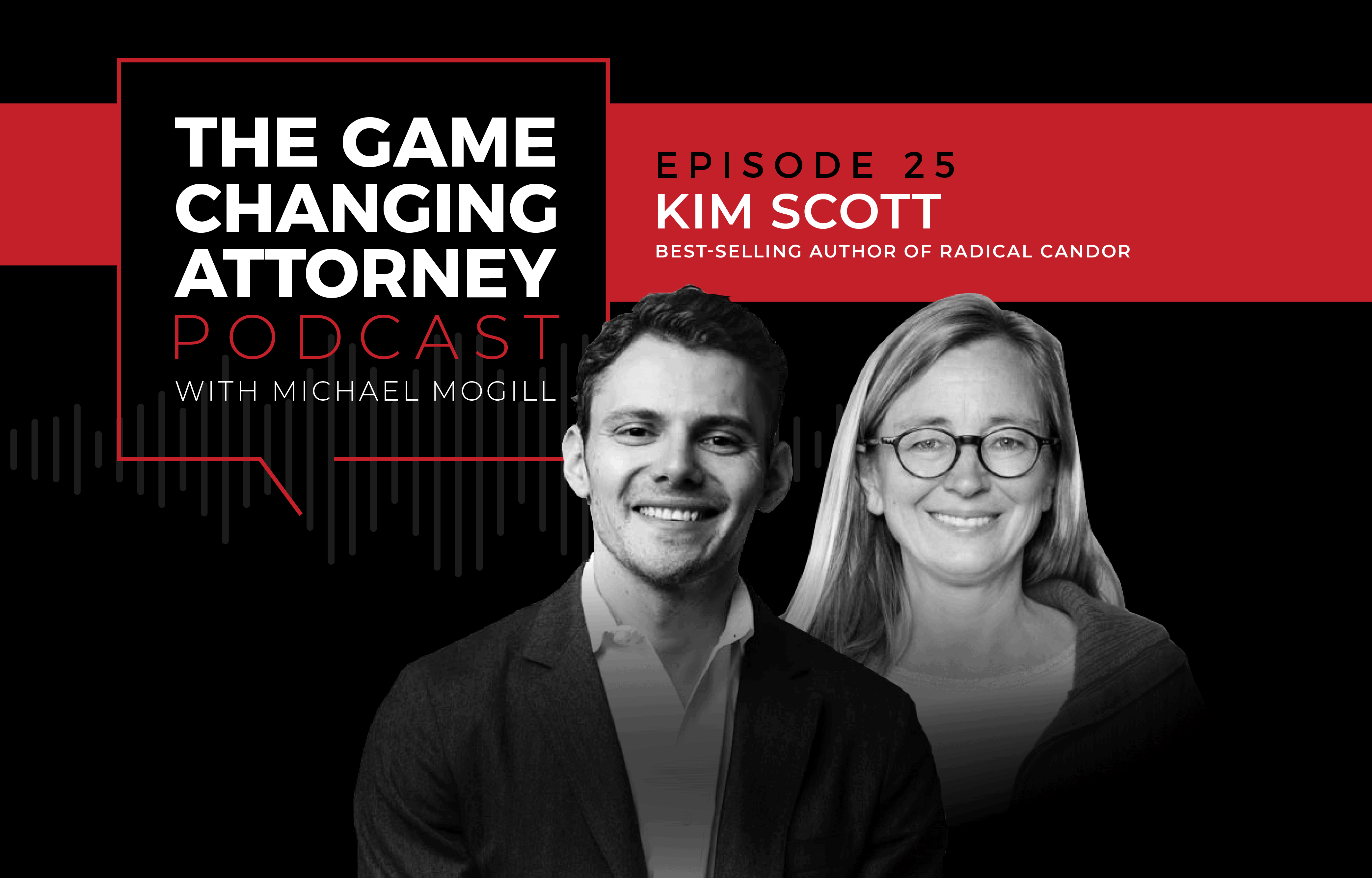
EPISODE 25 — Kim Scott — Radical Candor: How to be a Kickass Boss
Kim Scott has quite the resume. After getting her BA at Princeton and her MBA from Harvard, she led teams at both Apple and Google, and she has coached the CEOs of some of the top companies in the world, including Dropbox and Twitter.
In this episode of The Game Changing Attorney Podcast, Kim shares the groundbreaking conclusions that led to her best-selling book Radical Candor — and tells you what you need to know to become a kickass boss.
Buckle up for a revolutionary conversation that tackles the questions:
- Why should every CEO get their whole company to critique them?
- What radical candor did Sheryl Sandberg drop on Kim Scott after a presentation at Google?
- Why do leaders need to get comfortable with challenging directly?
- How can you make someone feel good about being fired?
- and much more!
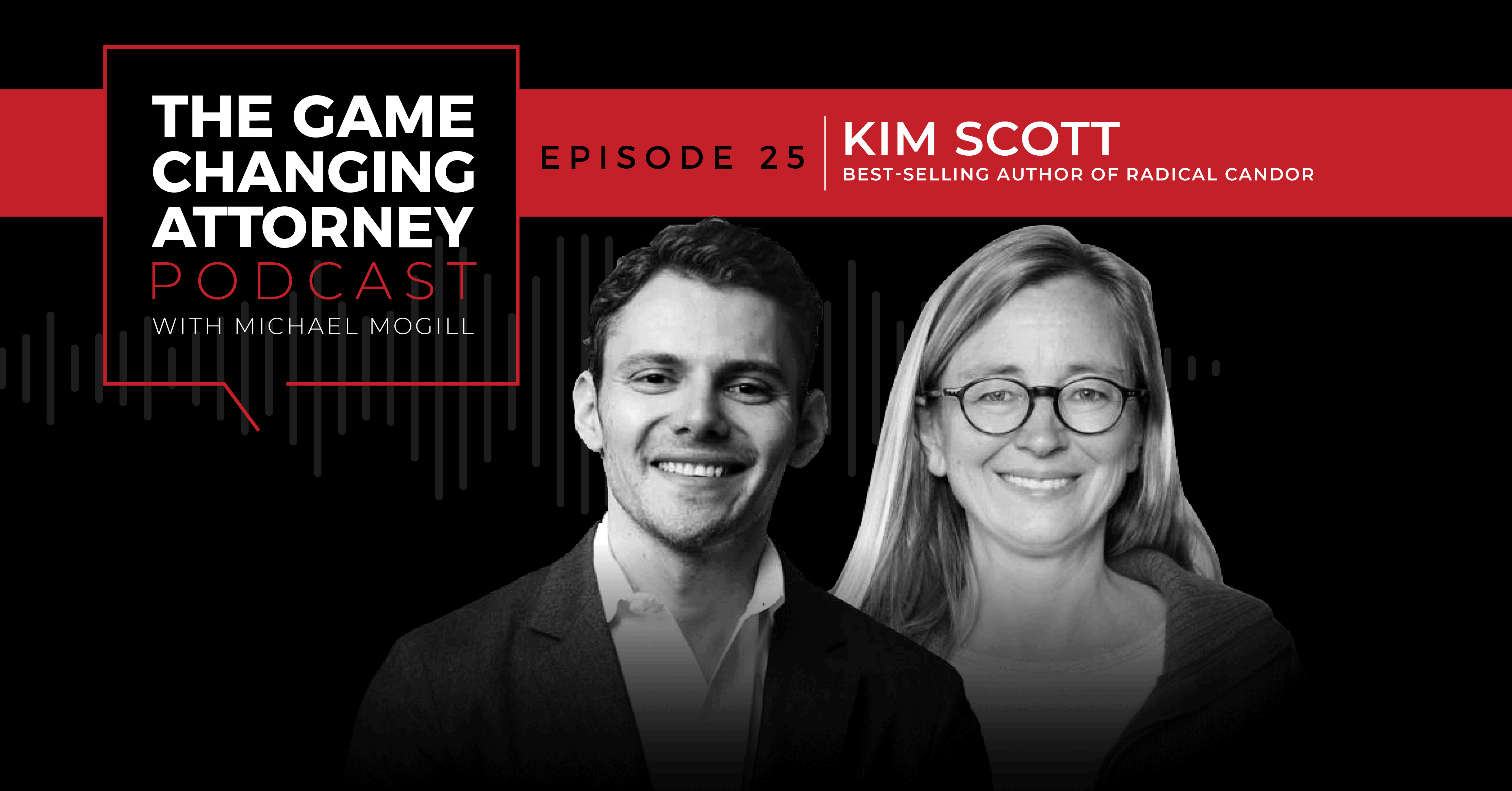
Listen & Subscribe
Show Notes:
1:52 – Origin of Radical Candor. “Fundamentally, the reason why I wrote the book stems from an early management experience I had. I came into the office — a small software company about 65 people — and about 10 people had sent me the same article. And you know when 10 people send you the same article, you better stop what you’re doing and read it. The article was about how people would rather have a boss who is a real asshole but very competent than one who’s really nice but incompetent. And I thought, ‘Gosh, are they sending me this because they think I’m a jerk or because they think I’m incompetent? Surely those are not my two choices.’ I think for an awful lot of people there is this false dichotomy that you’re either super successful and a bad human being, or you’re a really good human being and kind of a pushover. That is a false dichotomy. So, I think a lot of my management career has been about breaking free of that false dichotomy, and certainly writing Radical Candor is about breaking free of that false dichotomy.”
3:20 – What is radical candor? “Radical candor means the ability to care personally about someone, but at the same time that you challenge them directly. To me, that’s the essence of being a good boss. It is really the essence of having a good relationship, period. But, in particular, it’s important when you’re the boss because it’s your job to tell people when things are going really well, but it’s also your job to tell them when things are not going so well. And you always want to do both things in a way that shows that you care about the person.”
11:20 – Learning from feedback. “My boss Sheryl Sandberg says to me, ‘You said “um” a lot in there. Were you aware of it? I know this great speech coach. I’m sure Google would pay for it. Would you like an introduction?’ I made this brush-off gesture with my hand and I said, ‘Yeah, I know. It’s just a verbal tic. It’s no big deal.’ Then she stopped, she looked right at me, and she said, ‘When you say “um” every third word, it makes you sound stupid.’ Now she’s got my full attention. Some people might say it was mean of Sheryl to say I sounded stupid, but in fact it was the kindest thing she could have done for me at that moment in my career.”
15:00 – No more meetings after the meeting. “If you can create a culture where people say what they really think in a way that is not obnoxious but that shows that they’re respecting their colleagues in the meeting, then you can have three times less meetings. You can also be more innovative. People cannot be innovative if they are unable to say what they really think, and they also can’t build good relationships if they can’t disagree with one another in a way that is respectful.”
19:51 – Receiving public criticism. “There’s one exception to the ‘praise in public, criticize in private’ rule, and that is when you’re the CEO or when you’re the leader of your team. One of the things that I did was I encouraged the people who are most likely to criticize me in private to do it publicly — and I did that for three reasons. One reason was that whatever their criticism was, I could be sure 30 other people had the same criticism. Now I could address that all at once rather than 30 times. It also gave me the opportunity to model for the whole organization how to receive feedback: how to solicit feedback, and how to respond appropriately to it. At the core of good management is a good human relationship. It’s not a friendship — it’s different. One of the things that’s most damaging to a human relationship is a power imbalance, and therefore one of the most important things you can do as a leader is actually put your power down. By soliciting criticism in public, it was a way for me to put my power down and to say, ‘Your opinions matter, and it’s my job to solicit your opinions and to act on them.’”
23:05 – Solicit authentic feedback. “You’d rather do almost anything else in those two minutes in between meetings than call the person and have this quick conversation. But if you put it into practice, it’s really like brushing and flossing — it’s not like a root canal. It’s something you just get in the habit of doing, and you feel kind of bad when you don’t do it once you get it. The hard thing of course is getting in the habit. One of the things that I recommend doing is saving five minutes at the end of your one-on-ones with people who work for you and asking them to give you feedback. Don’t just say ‘Do you have any feedback for me?’ because if you do that I can already tell you what the answer is: ‘Oh no. Everything’s fine.’ So, you want to figure out how you’re going to ask it, and you need to ask it in a way that feels authentic.”
26:17 – Praise over criticism. “There was a guy who worked for me whose team often found him intimidating and negative. They were afraid of him a little bit, and he knew it. I was trying to talk to him about this and was trying to give him very specific examples of when he was being negative at the end of meetings, and by the fourth time I pulled him aside, he said, ‘I know. This is my personality. I can’t change it.’ Then, I realized that I was being negative with my feedback, and what I needed to do was a little more positive target identification. I said, ‘I’m going to point out every time I see you get it right. Every time I see you encouraging someone in a meeting, every time I see the positive in a meeting, I’m going to point out when you’re getting it right. We’re going to figure out how to change it that way.’ He later became one of the most beloved leaders at his company. So, remember that radical candor is not all about criticism. It’s even more importantly about praise. Praise shows what success looks like. Praise reminds people of what’s possible, and is a more effective tool in your toolkit than criticism.”
28:11 – Candor versus truth. “It’s important to remember that praise needs to be specific and sincere, and criticism needs to be kind and clear. You want to go into those conversations in the right mindset, so you want to make sure that you’re being humble about what you’re saying. The reason I call it ‘candor’ and not ‘truth’ is to me at least candor says, ‘Here’s what I see. I’m curious to know what you see.’ Whereas if I say I’m going to tell you the truth, I’m sort of implying that I have the objective reality and whatever you think doesn’t matter. So, it’s not that I’m opposed to truth, but candor to me feels more humble. You want to state your intention to be helpful. You want to do it right away.”
31:09 – Gauging the feedback. “There’s an even more important thing than what you say, and that is paying attention to how it lands for the other person. I call this ‘gauging the feedback.’ You want to make sure that you understand how the other person is interpreting what you’re saying, because you may be saying one thing and odds are, they’re hearing something entirely different. Feedback is measured not at your mouth but at the other person’s ear.”
34:14 – Challenge directly. “These are the moments we fear, but is what usually happens — the person doesn’t hear you or your criticism. The ‘Oh, it’s no big deal. I’m busy. I forgot…’ excuse. That is when you have to forget about caring personally for a moment. That’s when you have to move further out on the ‘challenge directly’ dimension than you might be comfortable moving. In fact, when I was writing Radical Candor, I sent that story that’s in the book to Sheryl and she said, ‘Gosh, did I really say that you sounded stupid? That’s so mean.’ So, it was harder than it seemed for her to move out on the ‘challenge directly’ dimension. It’s hard for all of us. Very few people are eager to go there, but you’ve got to go there. It’s your job to clear when someone’s not hearing you.”
40:54 – Learning from mistakes. “I sat down to have a conversation with Bob that I should have begun 10 months previously, and when I finished explaining to Bob where things stood, he looked me right in the eye and said, ‘Why didn’t you tell me? Why didn’t anyone tell me? I thought you all cared about me.’ I realized that I had failed Bob in a bunch of different ways. I had failed to solicit feedback from Bob. I also didn’t give him praise that was meaningful. The kind of praise I gave him was really just kind of, ‘Oh, Bob. You’re so awesome, maybe you can make it a little better.’ I also didn’t tell him when his work wasn’t nearly good enough — but worst of all, I failed to create the kind of environment in which everyone would tell Bob what was truly fun and good about working with him, and when he was going off the rails. And because I had failed Bob in all these different ways, I was now firing him because of it.”
43:33 – Sleep is vital. “I’m one of those people who needs not eight hours of sleep, but really nine. I used to feel guilty about going to sleep so early or sleeping so late, and I realized I shouldn’t feel guilty about it. I should feel proud when I do it because I’m more effective at work when I do it, and I feel better all day long. Taking care of yourself is part of your job. If you can’t manage yourself, you can’t possibly manage other people.”
43:58 – Discover your recipe. “One of the things that I recommend to the people I coach is to figure out what their recipe is — the things you need to do in order to stay centered. Everybody’s got a different recipe. Some people love to meditate, while other people hate to meditate. I’ll share mine with you, but you don’t have to take my recipe. I need my nine hours of sleep, an hour of exercise, and at least 20 minutes of conversation with someone I love. If I can do those three things every single day, no matter how unstable the world seems, I feel like I’m on solid ground. If I don’t do those things, then even when the world around me is very stable, I feel very unstable. So it’s really important to figure out what your recipe is, and follow it every day.”
47:43 – What does being a game changer mean to you? “Being a game changer to me means living the life I imagined. The reason why I started my business career was to subsidize my novel-writing habit. Finally at this point, my business career and my writing career have merged in a way that brings me a lot of joy, and I hope helps a lot of other people be their best selves and live the lives they imagined.”
EPISODE RESOURCES
Radical Candor by Kim Scott
American Idol
Sheryl Sandberg
Sergey Brin
Eric Schmidt
Ed Catmull
Francoise Brower
Russ Laraway
Spirulina
Christa Quarles
OpenTable
Jason Rosoff
Situation-Behavior-Impact Feedback Tool
Fred Kofman
Connect with Michael
- Text directly at 404-531-7691
